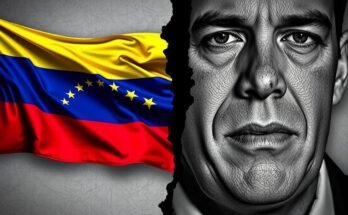Smartmatic announced its withdrawal from Venezuelan electoral management after denouncing fraud in the 2017 elections. However, investigations revealed that its software was used in at least three subsequent elections, conducted in secrecy and facilitated through an intermediary company, raising concerns about the company’s integrity and claims of having completely exited the electoral process in Venezuela.
Smartmatic, an electronic-voting technology company, publicly criticized the Venezuelan government for electoral fraud following the contested 2017 National Constituent Assembly vote and subsequently announced its withdrawal from Venezuela after 13 years of operations. However, recent investigations by the Miami Herald reveal that Smartmatic continued to license its software for use in at least three subsequent elections in Venezuela, including municipal elections in December 2017 and a presidential election in May 2018. The internal documents from Venezuela’s National Electoral Council indicated that Smartmatic’s technology was used covertly, with the Venezuelan officials and Smartmatic agreeing to employ a third-party company, Ex-Cle, to mask their collaboration. Sources familiar with the situation disclosed that Smartmatic provided key technical support, despite its publicly stated departure from the electoral process. Sources within the electoral council confirmed Smartmatic’s involvement, which included installation and activation of the election software. Smartmatic’s software associate manager, Juan Valera, was a key figure in this process and traveled to Caracas to oversee operations despite the company’s assertion that it was no longer part of the Venezuelan elections. In response to inquiries from the Miami Herald regarding these operations, Smartmatic initially denied any post-exit involvement, asserting that since it withdrew its services, its software had not been used. However, when presented with evidence of its audits, Smartmatic’s position shifted, leading to a clarification that the software used could not be deemed authentic unless Smartmatic participated in every aspect of its deployment. Furthermore, Smartmatic publicly proclaimed in a 2020 statement that it did not provide any services or software licenses to the Venezuelan government post-2017. The investigation highlights discrepancies between Smartmatic’s official statements and actions taken in the aftermath of its departure from Venezuela, with sources claiming that internal audits indicate the company’s substantial involvement in the electoral process, contrary to its public assertions. Documents also suggest that payments for the software use were indirectly routed through Ex-Cle, intensifying the implications of Smartmatic’s operational integrity. Additionally, Smartmatic founder Roger Piñate was recently indicted in the U.S. for allegations of foreign bribery related to election contracts in the Philippines, further complicating the company’s standing in international business practices.
The political landscape in Venezuela has been deeply affected by allegations of fraudulent elections and a lack of transparency in the electoral process. Smartmatic, originally founded by Venezuelan entrepreneurs, gained prominence after being selected to modernize the country’s voting infrastructure in the early 2000s. The firm’s experiences in Venezuela led it to become a vocal critic of the governmental practices that undermined democratic principles, particularly in elections. As Smartmatic distanced itself from the Venezuelan regime, it faced scrutiny over its claims and the actual role it played in subsequent elections following its withdrawal. The broader implications of electoral integrity and corporate accountability in the context of political relationships are underscored by ongoing investigations and legal challenges faced by Smartmatic in various regions.
The case of Smartmatic in Venezuela reflects significant issues surrounding electoral integrity and corporate responsibility in politically volatile environments. Though Smartmatic publicly distanced itself from continued electoral practices in Venezuela, documentation reveals a complex relationship involving misrepresentation and hidden operations following its claimed withdrawal. Such revelations raise essential questions about the authenticity of electoral processes and the ethical implications for companies engaged in the provision of technological services in politically sensitive contexts. The unfolding narrative not only impacts Smartmatic’s credibility but also highlights the pervasive challenges in ensuring democracy and fair electoral practices globally.
Original Source: www.miamiherald.com




